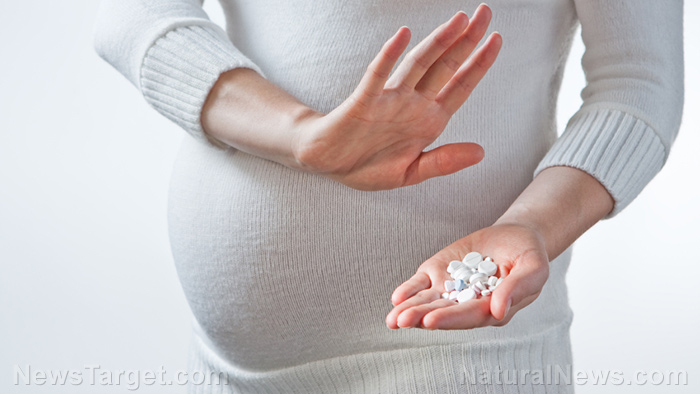Pregnant women who take antidepressants increase risk of psychiatric disorders for their kids
09/13/2017 / By Isabelle Z.

Mothers-to-be who are mulling over the decision about whether to take antidepressants while pregnant might want to take note of a recent study out of Aarhus University that reveals that doing so raises a child’s risk of having a psychiatric disorder later in life.
In the study, which looked at nearly a million Danish children born between 1998 and 2012, researchers divided children into one of four groups according to their mother’s use of antidepressants prior to becoming pregnant as well as during pregnancy.
The first group was never exposed to antidepressants in the womb, while in the second group, mothers had taken antidepressants before becoming pregnant but not during the pregnancy. A third group had children born to mothers who took antidepressants before and during the pregnancy, while group 4 was composed of children born to mothers who had started taking antidepressants for the first time during pregnancy.
They found that roughly twice as many kids were diagnosed with psychiatric disorders in the fourth group than the first one, at 14.5 percent versus 8 percent. Groups 2 and 3 noted 11.5 percent and 13.6 percent diagnosis rates by age 16, respectively.
The researchers considered the fact that in addition to antidepressant exposure in the womb, heritability can also influence who is diagnosed with psychiatric disorders. While they did find an increase in autism, depression, ADHD and anxiety if the mother had these conditions, they believe antidepressant use increases the child’s risk of psychiatric diseases even further.
According to the study, which was published in the BMJ medical journal, drugs like SSRIs can cross the placental barrier and impact fetal brain development.
A different study from 2016 out of the Helsinki University Children’s Hospital found that taking SSRIs during pregnancy has a negative effect on the brain chemistry of the baby. Meanwhile, a study that was published in JAMA Pediatrics found that women who took SSRIs in their second or third trimester had double the chance of giving birth to babies who would develop autism.
The news gets worse: McMaster University researchers found a correlation between SSRI antidepressant use in pregnancy and diabetes, obesity, and metabolic complications like fatty liver. On top of that, a Danish study found that women who took SSRIs during pregnancy had twice the risk of premature birth as those who do not take them. They’ve also been linked to a higher rate of birth defects and miscarriages.
More recently, a study carried out at the Icahn School of Medicine at Mount Sinai found that the kids of mothers who took antidepressants during pregnancy had twice the risk of developing intellectual disability later in life.
Safer options for dealing with depression during pregnancy
It’s pretty clear that taking antidepressants during pregnancy is not a good idea, but this does not change the fact that many women suffer from depression and the hormones of pregnancy can sometimes make it worse. There are a few things that women can try to help cope with the problem without putting their baby’s future physical and mental health at risk.
For example, a Johns Hopkins University study discovered that meditation can be as effective as antidepressants, while spending time with nature has also been shown to help deal with depression. Some people find that yoga can help cope with depression, while others have found success doing regular exercise.
Having a baby is an exciting time, and problems like depression, anxiety and stress can really put a damper on the preparations and anticipation. As tempting as it may be to simply take a pill to make the bad feelings go away – which, by the way, is not always successful as most antidepressants are no more effective than a placebo – it is important to keep in mind that doing so could put your child’s health at risk.
Sources include:
Tagged Under: Antidepressants, depression, expectant mothers, pregnancy, psychiatric disorders, psychiatry
RECENT NEWS & ARTICLES
COPYRIGHT © 2017 BRAIN NEWS


















